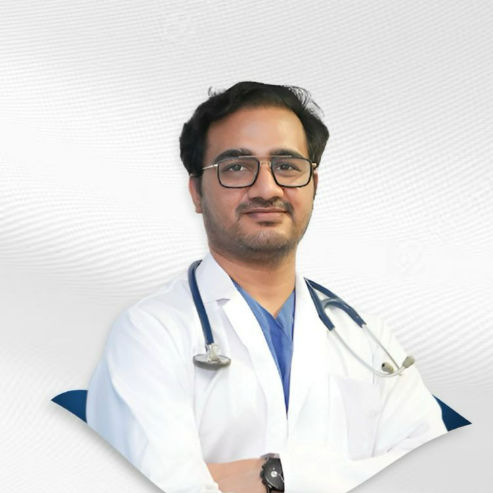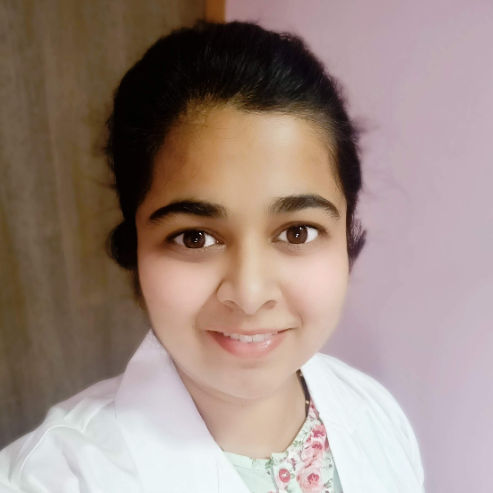Understanding Complete Heart Block on ECG
Learn what complete heart block looks like on an ECG, its causes, symptoms, and clinical significance. Understand how this serious cardiac condition is diagnosed and managed effectively.

Written by Dr. Shaik Abdul Kalam
Reviewed by Dr. Rohinipriyanka Pondugula MBBS
Last updated on 25th Aug, 2025

Introduction
Heart health is crucial for overall well-being, and sometimes, electrical signals in the heart don’t work as they should. One such condition is Complete Heart Block (CHB), also known as Third-Degree Atrioventricular (AV) Block. If you or a loved one has been diagnosed with this condition, it’s natural to have questions. This article will help you understand what Complete Heart Block is, how it appears on an ECG (Electrocardiogram), its symptoms, causes, and what you can do to manage it.
What is Complete Heart Block?
Your heart has an electrical system that controls its rhythm. Normally, electrical signals travel from the upper chambers (atria) to the lower chambers (ventricles), making them beat in sync.
In Complete Heart Block, this connection is disrupted, the signals from the atria do not reach the ventricles at all. As a result:
The atria beat at their own normal rate.
The ventricles beat at a much slower rate (controlled by a backup system).
This means the heart cannot pump blood efficiently, which can lead to serious complications if untreated.
Consult Top Specialists for Personalised Tips
How is Complete Heart Block Detected on ECG?
An ECG (Electrocardiogram) is a simple, painless test that records the heart’s electrical activity. In Complete Heart Block, the ECG shows:
No relationship between the P-waves (atrial activity) and QRS complexes (ventricular activity).
The atria beat normally (regular P-waves).
The ventricles beat independently at a slower rate (usually 30-50 beats per minute).
This pattern confirms that the electrical signals are not passing from the atria to the ventricles.
Symptoms of Complete Heart Block
Some people may not have symptoms, especially if the ventricles maintain a stable rate. However, common symptoms include:
Extreme fatigue or weakness
Dizziness or lightheadedness
Fainting (syncope)
Shortness of breath
Chest pain (in severe cases)
Slow pulse
If you experience any of these symptoms, especially fainting or severe dizziness, seek medical attention immediately.
What Causes Complete Heart Block?
Several factors can lead to Complete Heart Block, including:
Aging (natural wear and tear of the heart’s electrical system).
Heart disease (coronary artery disease, heart attack).
Inflammation or infection (myocarditis, Lyme disease).
Medications (some heart drugs like beta-blockers or calcium channel blockers).
Congenital heart defects (present from birth).
Surgery or trauma affecting the heart’s electrical pathways.
How Does Complete Heart Block Affect Health?
Since the heart cannot pump blood efficiently, complications may arise, such as:
Low blood pressure (due to poor circulation).
Heart failure (if the heart cannot meet the body’s demands).
Sudden cardiac arrest (in severe cases).
Early diagnosis and treatment are essential to prevent these risks.
How is Complete Heart Block Treated?
The main treatment for Complete Heart Block is a pacemaker, a small device implanted under the skin that sends electrical signals to regulate the heartbeat.
Lifestyle & Management Tips
If you have a pacemaker or are at risk of heart block:
Follow up regularly with your cardiologist.
Avoid excessive alcohol and smoking.
Stay active with doctor-approved exercises.
Eat a heart-healthy diet (low salt, rich in fruits, vegetables, and whole grains).
Monitor symptoms and report any dizziness or fainting episodes.
When to See a Doctor?
If you experience:
Frequent dizziness or fainting
Extreme fatigue
Irregular heartbeat
Chest pain or shortness of breath
Consult a doctor immediately. Early intervention can prevent complications.
Need Help? Book an ECG or Consultation Today!
If you suspect heart rhythm issues or need an ECG test, Apollo 24|7 makes it easy to book a consultation or test from home. Early detection can save lives!
Conclusion
Complete Heart Block is a serious condition, but with proper treatment (like a pacemaker) and lifestyle adjustments, many people lead healthy, active lives. If you have concerns about your heart health, don’t hesitate to seek medical advice.
Consult Top Specialists
Consult Top Specialists for Personalised Tips

Dr. Tripti Deb
Cardiologist
40 Years • MBBS, MD, DM, FACC, FESC
Hyderabad
Apollo Hospitals Jubilee Hills, Hyderabad
Dr Moytree Baruah
Cardiologist
10 Years • MBBS, PGDCC
Guwahati
Apollo Clinic Guwahati, Assam, Guwahati

Dr. Zulkarnain
General Physician
2 Years • MBBS, PGDM, FFM
Bengaluru
PRESTIGE SHANTHINIKETAN - SOCIETY CLINIC, Bengaluru

Dr. Janjirala Seshivardhan
Cardiologist
7 Years • MBBS,DNB(GM),DM(Cardiology)
Manikonda Jagir
Apollo Clinic, Manikonda, Manikonda Jagir

Dr Nazneen Khan
Cardiologist
7 Years • M.B.B.S, M.D (MEDICINE), DrNB CARDIOLOGY
Pune
Apollo Clinic, Viman Nagar, Pune
Consult Top Specialists

Dr. Tripti Deb
Cardiologist
40 Years • MBBS, MD, DM, FACC, FESC
Hyderabad
Apollo Hospitals Jubilee Hills, Hyderabad
Dr Moytree Baruah
Cardiologist
10 Years • MBBS, PGDCC
Guwahati
Apollo Clinic Guwahati, Assam, Guwahati

Dr. Zulkarnain
General Physician
2 Years • MBBS, PGDM, FFM
Bengaluru
PRESTIGE SHANTHINIKETAN - SOCIETY CLINIC, Bengaluru

Dr. Janjirala Seshivardhan
Cardiologist
7 Years • MBBS,DNB(GM),DM(Cardiology)
Manikonda Jagir
Apollo Clinic, Manikonda, Manikonda Jagir

Dr Nazneen Khan
Cardiologist
7 Years • M.B.B.S, M.D (MEDICINE), DrNB CARDIOLOGY
Pune
Apollo Clinic, Viman Nagar, Pune




